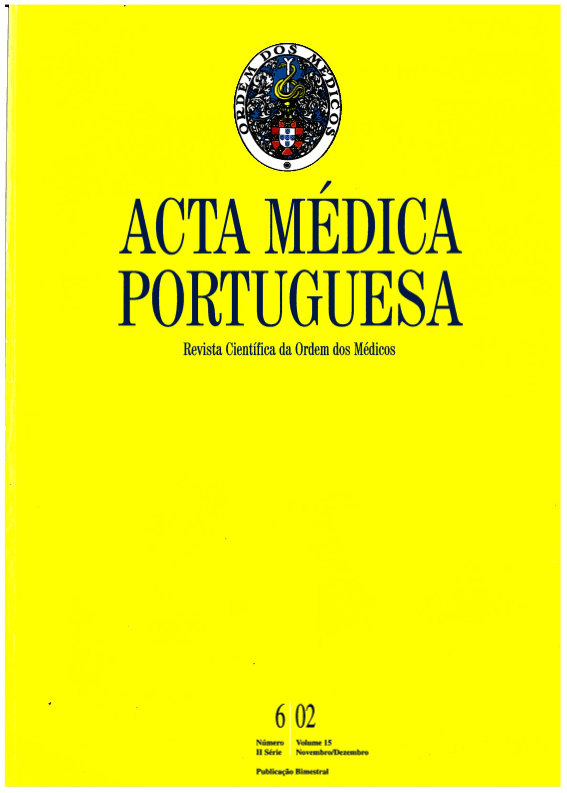Prognostic value of the finding of blood/clots in the stomach at the emergency upper endoscopy.
DOI:
https://doi.org/10.20344/amp.1985Abstract
In the setting of upper endoscopy after upper gastrointestinal bleeding (UGIB), the presence of blood or clots in the gastric lumen precluding the complete mucosal examination is a frequent finding.To define the prognostic value of this endoscopic finding and the need of a follow-up endoscopy.Retrospective study of 100 consecutive patients with UGIB and the endoscopic finding of blood in the stomach (Group A) and 100 at the same conditions but without this endoscopic finding (Group B). In both groups we compared the bleeding lesions and the presence of clinic, laboratorial and endoscopic signs of severity.Gastric and duodenal ulcers were the bleeding lesions more frequently identified in both groups. Lesions related to portal hypertension were more frequent in the first than in the second one. There was also a significant association with other endoscopic signs of severe haemorrhage and with the clinical signs of bad prognosis. In the follow-up endoscopy we found new lesions in 46% of the patients in the first group and only in 15% of the second one.The endoscopic finding of blood or clots in the stomach should be considered as a bad prognostic sign and lead to a second endoscopy.Downloads
Downloads
How to Cite
Issue
Section
License
All the articles published in the AMP are open access and comply with the requirements of funding agencies or academic institutions. The AMP is governed by the terms of the Creative Commons ‘Attribution – Non-Commercial Use - (CC-BY-NC)’ license, regarding the use by third parties.
It is the author’s responsibility to obtain approval for the reproduction of figures, tables, etc. from other publications.
Upon acceptance of an article for publication, the authors will be asked to complete the ICMJE “Copyright Liability and Copyright Sharing Statement “(http://www.actamedicaportuguesa.com/info/AMP-NormasPublicacao.pdf) and the “Declaration of Potential Conflicts of Interest” (http:// www.icmje.org/conflicts-of-interest). An e-mail will be sent to the corresponding author to acknowledge receipt of the manuscript.
After publication, the authors are authorised to make their articles available in repositories of their institutions of origin, as long as they always mention where they were published and according to the Creative Commons license.









